News & Media
Africa: Time for honest stocktaking
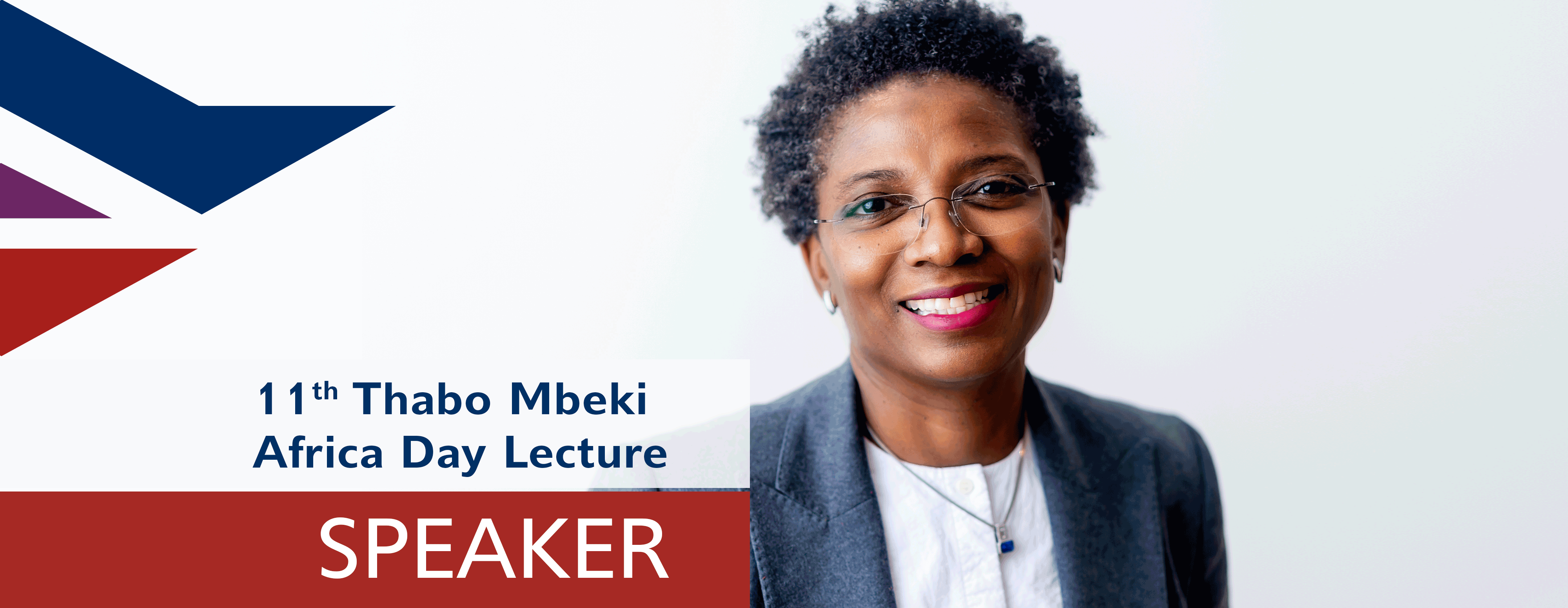
Unisa and the Thabo Mbeki African School of Public and International Affairs (TM-School), along with the Thabo Mbeki Foundation, held the 11th Thabo Mbeki Africa Day Lecture on Africa Day, 25 May 2021.The lecture, which was themed Retrospecting to Prospect: Quo Vadis Africa?, set out to discuss and distil strategic and tactical conclusions from a variety of developments that currently define the status of the African continent.
In her welcome address, Prof Puleng LenkaBula, Principal and Vice-Chancellor (VC) of Unisa, said that the commemoration of Africa Day was meant to provide African leaders with a reflective pause to examine the progress that Africa has made since independence. She added: "Today, more than a decade after the Thabo Mbeki Africa Day Lecture at Unisa, we should ask ourselves what kind of Africa we want. This time of the year Africans and those who love Africa and its people gather to celebrate Africa and what it means to be African, and also to reflect on the meaning of the freedom which was won through a great struggle. Africa Day gives all of us a chance to pause and consider the connection of the hopes of the past to the disappointments of the present."
The VC also asserted that Africa Day within the Unisa context is a commemorative event. "This," she said, "will remain so as we promote and proclaim Africa Day and the role which Unisa plays in providing an opportunity to reclaim Africa’s intellectual traditions, reclaim the future, propel society through knowledge and collaborate with the TM-School."

Prof Funmi Olonisakin
Delivering the lecture, which aimed to reflect on, among others, challenges confronting the continent such as questions relating to the quality of leadership, the worsening of security and development, and the lack of a clear strategic vision and voice regarding Africa’s place in the world, was renowned British-Nigerian academic Prof Funmi Olonisakin. Olonisakin is Vice-President and Vice-Principal International at King’s College London, and also Professor of Security, Leadership and Development at the institution. Olonisakin is a founder of the African Leadership Centre (ALC), which aims to build the next generation of African scholars and analysts generating cutting-edge knowledge for peace, security and development in Africa.
An insecure peace agenda
Olonisakin was blunt in her address, and her key message was that Africa’s peace agenda is insecure. "As we mark this year’s Africa Day amidst a fight against a pandemic and against the backdrop of the African Union silencing the gun agenda, the evidence today suggests that the guns are far from being silent," she said. "From Mozambique to Tigray and Chad, the guns continue to blaze and blight our development." She argued further that the time has come for Africa to do honest stock-taking and, in doing so, ask itself where it is heading.
Olonisakin said the continent needed to look back in order to look forward. "What will it take to sustain Africa’s peace?" she asked. She responded to her question by submitting that Africa is not without its measure of peace. "The vast majority of African citizens are peaceful whilst aspiring to live well, live long and live in dignity," she said. "So, contrary to what is often claimed, the majority of Africa’s young people are peaceful. Only a tiny proportion is involved in violence as reflected in the Peace Report."
Olonisakin spoke significantly of Africa’s Peace Agenda, which consists of things African leaders said they will do in order to sustain peace nearly a decade ago. Flowing from this she argued: "Africa has well-developed norms supported by a well-defined peace and wellness architecture." She stressed that Africa’s peace agenda is profoundly insecure as a result of deep flaws in its leadership infrastructure.
A shortage of quality leadership
"The peace agenda is in crisis today because there’s a dire shortage of quality leadership that will secure and develop Africa," said Olonisakin. "Had we proceeded on the trajectory that was planned, we might have managed to secure African people to a great extent and move significantly in the direction of silencing the guns. Nationally and internationally, the weakness of leadership and non-rootedness of national leaders and the disconnection to citizens are factors weakening the peace agenda."
Olonisakin argued further that while the African Union has the structures to address challenges in Africa, it lacks the will and power to implement accordingly. "The institution’s failure to intervene in Ethiopia’s conflict that threatens to destabilise the country while the country houses the institution’s headquarter in the country’s capital is just one example of the institution’s failure to implement. While international actors have tried to intervene, just like the United States which sent an envoy to the region and imposed sanctions on individuals involved on the crisis, the African Union failed to publicly act. We might be watching with our arms folded the largest humanitarian disaster unfolding on our continent," said Olonisakin.
"It is one thing not to act, it is another to be indifferent when the world tries to help. Thus far, there is no credible or legitimate African institution to deal, even informally, with the international community on the question of the humanitarian crisis in Tigray," she said in a sombre note.
In agreement to Olonisakin and reluctant to add more to the frank and emotionally charged webinar, Chancellor of Unisa and Former President Thabo Mbeki said in his closing remarks that after this lecture, it is critical to ask ourselves the question of what next? Responding to his question he said: "We need to commit ourselves as the Thabo Mbeki Foundation, Unisa and the TM School that we use today’s lecture as an instrument to mobilise in the directions in which the lecturer has intervened," he closed.
Click here to watch the full lecture.
* By Tshimangadzo Mphaphuli, Senior Journalist, Department of Institutional Advancement
Publish date: 2021-05-27 00:00:00.0

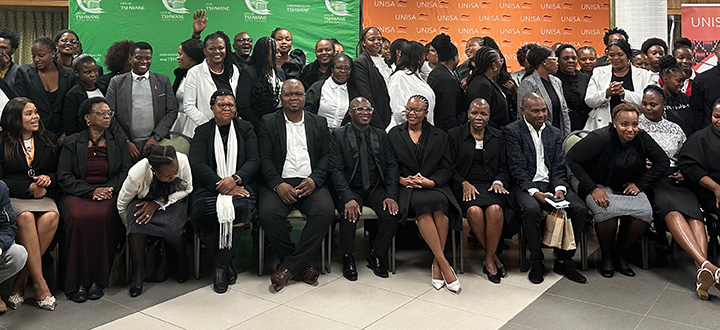 Unisa academics join hands to celebrate World Social Work Day
Unisa academics join hands to celebrate World Social Work Day
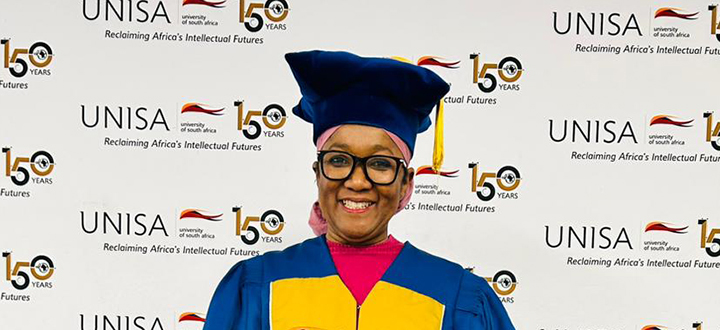 Unisa community engagement initiative targets school underperformance
Unisa community engagement initiative targets school underperformance
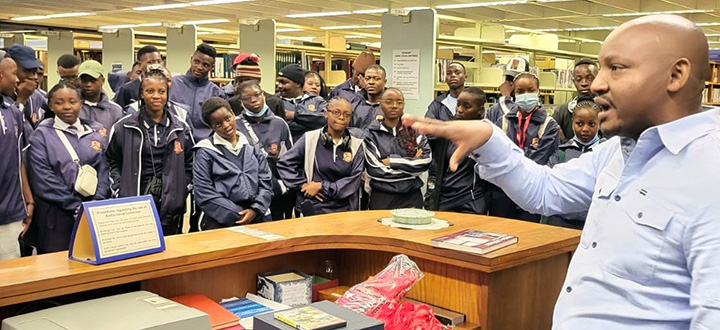 Library tour introduces learners to the wonderful world of Unisa
Library tour introduces learners to the wonderful world of Unisa
 Unisa Radio volunteer wins prestigious community journalism award
Unisa Radio volunteer wins prestigious community journalism award
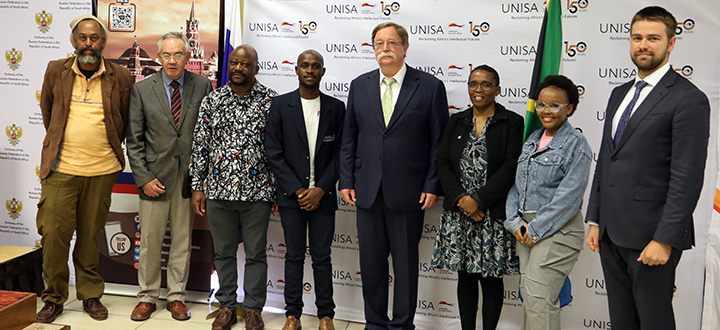 Unisa's student leadership engage with Russian ambassador
Unisa's student leadership engage with Russian ambassador